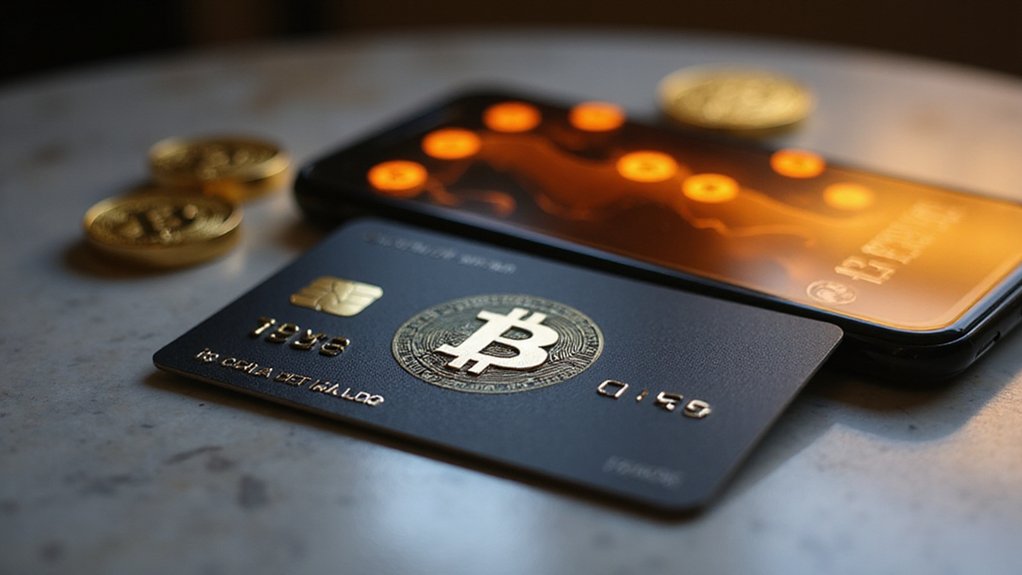The cryptocurrency market’s recent surge past the $3 trillion milestone has created a peculiar phenomenon: affiliate marketers who once hawked weight-loss supplements are now earnestly explaining blockchain technology to their audiences. This transformation reflects more than simple opportunism—it signals a fundamental shift in how digital asset promotion operates within the broader affiliate ecosystem.
Major exchanges like Binance and Coinbase have established sophisticated affiliate frameworks that dwarf traditional commission structures, while smaller platforms scramble to compete with increasingly generous terms.
The numbers tell an interesting story: where conventional affiliate marketing projects 8% annual growth toward $31 billion by 2031, crypto-specific programs are writing checks that would make seasoned marketers blink twice.
Crypto affiliate commissions are rewriting the playbook with figures that dwarf traditional marketing expectations.
Blockchain-Ads, for instance, offers minimum $1,000 bonuses for qualified referrals—a figure that transforms weekend bloggers into suddenly serious business operators.
The mechanics behind these programs reveal why crypto affiliates command premium rates. Unlike traditional e-commerce referrals that generate one-time commissions, crypto platforms offer lifetime revenue shares tied to user trading activity. When exchanges like MEXC, BingX, and Bitget utilize blockchain-based advertising networks for traffic management, they’re basically betting that today’s referral becomes tomorrow’s high-volume trader. The mathematics favor bold assumptions.
Content creators have discovered that crypto affiliate promotion requires more intellectual heavy lifting than typical product endorsements. Explaining wallet security, trading interfaces, and regulatory compliance demands genuine comprehension—or at least convincing simulation thereof. This knowledge barrier simultaneously limits competition and rewards those willing to invest in education. The mobile commerce revolution has particularly influenced crypto affiliate strategies, as platforms recognize the need to capture users who increasingly trade on their smartphones.
The trajectory toward 2025 suggests that successful crypto affiliates will increasingly resemble financial advisors rather than traditional marketers. Platforms like RockWallet capitalize on this trend by emphasizing user-friendly interfaces that affiliates can actually recommend without reservation. RockWallet’s program specifically rewards affiliates with $70 per referral who completes their first crypto trade, establishing a clear performance-based incentive structure. These programs leverage blockchain technology for secure and transparent commission tracking, reducing disputes and building trust between platforms and their affiliate partners. Meanwhile, the industry’s projected expansion to $27.78 billion by 2027 indicates that current commission structures may represent conservative estimates rather than generous gestures.
Market volatility, traditionally viewed as crypto’s weakness, has become affiliate marketing’s unexpected strength. Price fluctuations drive trading volume, trading volume generates commissions, and commissions attract affiliates who then drive additional user acquisition. The cycle perpetuates with mathematical precision that even skeptics find difficult to dismiss entirely.









